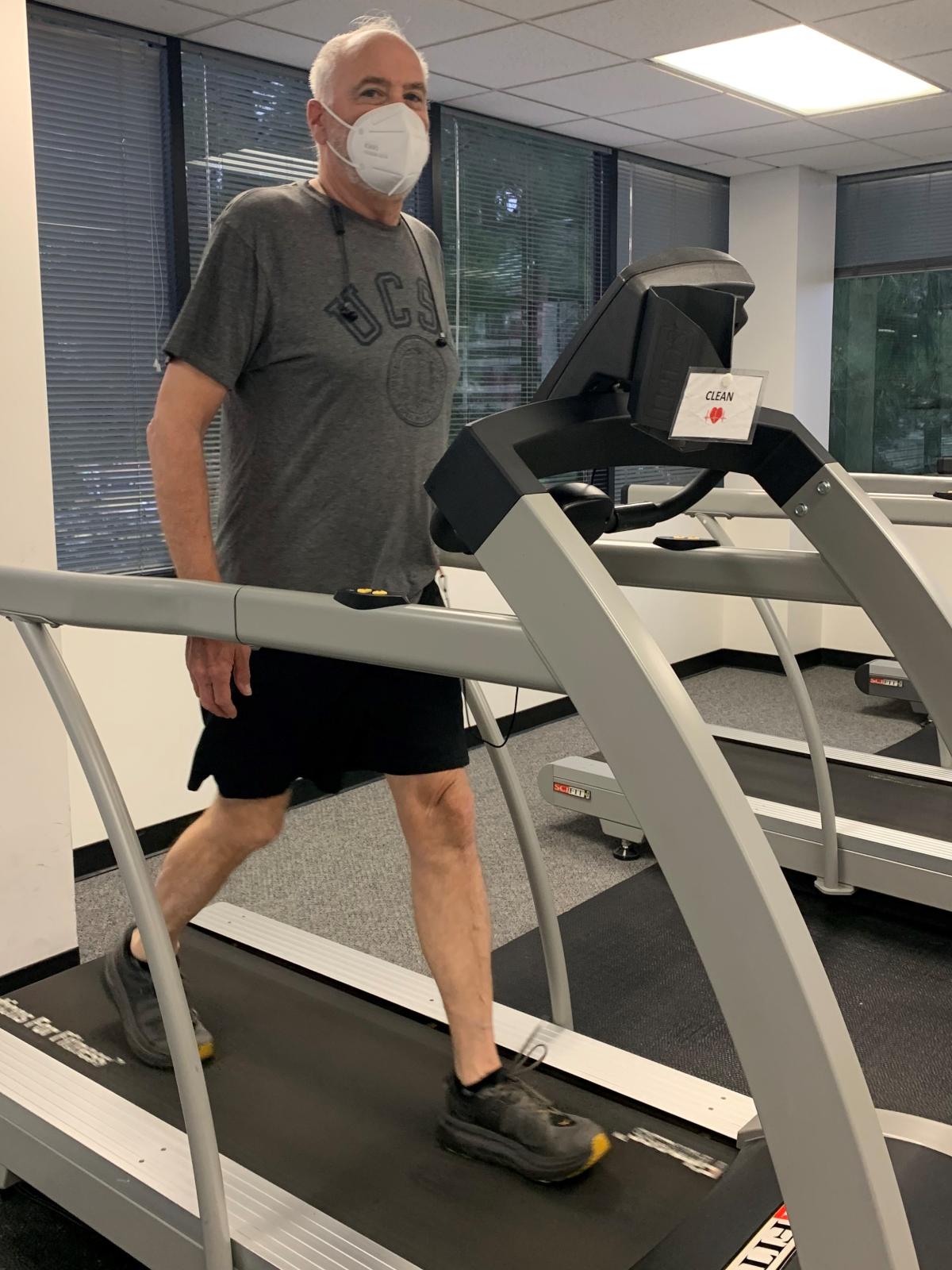 Steve G. has had a quadruple heart bypass, arterial stents, and suffers from chronic stable angina (chest pain). For Steve, going to a cardiac rehabilitation center that provides exceptional care and professional support is not only reassuring, it’s vital.
Steve G. has had a quadruple heart bypass, arterial stents, and suffers from chronic stable angina (chest pain). For Steve, going to a cardiac rehabilitation center that provides exceptional care and professional support is not only reassuring, it’s vital.
When Steve was referred to the Cardiac Rehabilitation Program at MemorialCare Saddleback Medical Center, he appreciated the staff’s professionalism and depth of experience in their respective fields.
“What struck me as amazing was the level of care and attention I would see the staff demonstrate to every patient that came in,” Steve says. “It’s really impressive.”
Steve is starting Phase 3 of rehabilitation in the Cardiac Rehabilitation Program at Saddleback Medical Center after initially starting Phase 2 in the fall of 2020. Since then, he has undergone 2 rounds of enhanced external counterpulsation (ECP or EECP), a non-invasive technique that aims to reduce the symptoms of chronic angina. This external pump assists in delivering blood in the lower body back towards the heart. The inflation and deflation of the pumps together improves the overall functioning of the heart. It can also help with formation of new branches of blood vessels “like a natural bypass around the blocked arteries.” Each round of EECP treatment is comprised of 35, one-hour treatment sessions over the course of seven weeks.
“During the hour that patients are here for the EECP, we monitor their EKG,” says Theresa Manning, R.N., clinical supervisor of the Cardiac Rehabilitation Program at Saddleback Medical Center. “We apply pneumonic cuffs that wrap the calves, the thighs and the hips while the patient lies flat on the bed.”
Having completed the EECP treatments, Steve attends the cardiac rehabilitation next door to the EECP treatment room. Both therapies are part of MemorialCare’s outpatient cardiac rehabilitation programs.
The Cardiac Rehabilitation Program at Saddleback Medical Center is well-equipped to handle heart patients of varied medical histories because of the experienced team of registered nurses and exercise physiologists providing exceptional care to patients.
Three times each week, Steve attends exercise sessions and is assessed and monitored by staff for the entire exercise session while he uses the treadmill, recumbent bicycle or other equipment.
Providing Professional Care by Experienced Staff
One way the staff provides exceptional care is by making rehab sessions personal. The care team gets to know patients on a personal level from stories about their families, their likes and dislikes. The MemorialCare team and rehab patients become their own “family.”
“We try to make it fun for the patients because a lot of times the patients have to spend quite a bit of time here,” Theresa says.
For Steve, who has gotten to know the staff well over the course of his treatments, coming to the Cardiac Rehabilitation has instilled a sense of confidence because he knows that when he is monitored by the expert staff, he is in good hands.
“As a patient, you’re coming into the program after some kind of heart-related event or surgery and you’re initially unsure of your ability to exercise,” Steve says. “You worry about every tick and thump of your heart. This program lets you work out while a caring team monitors you. It really builds the confidence to get back to a much more normal, active existence. It’s been a great program for me. I really appreciate the opportunity!”